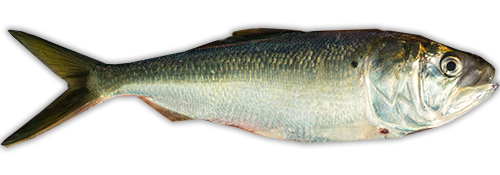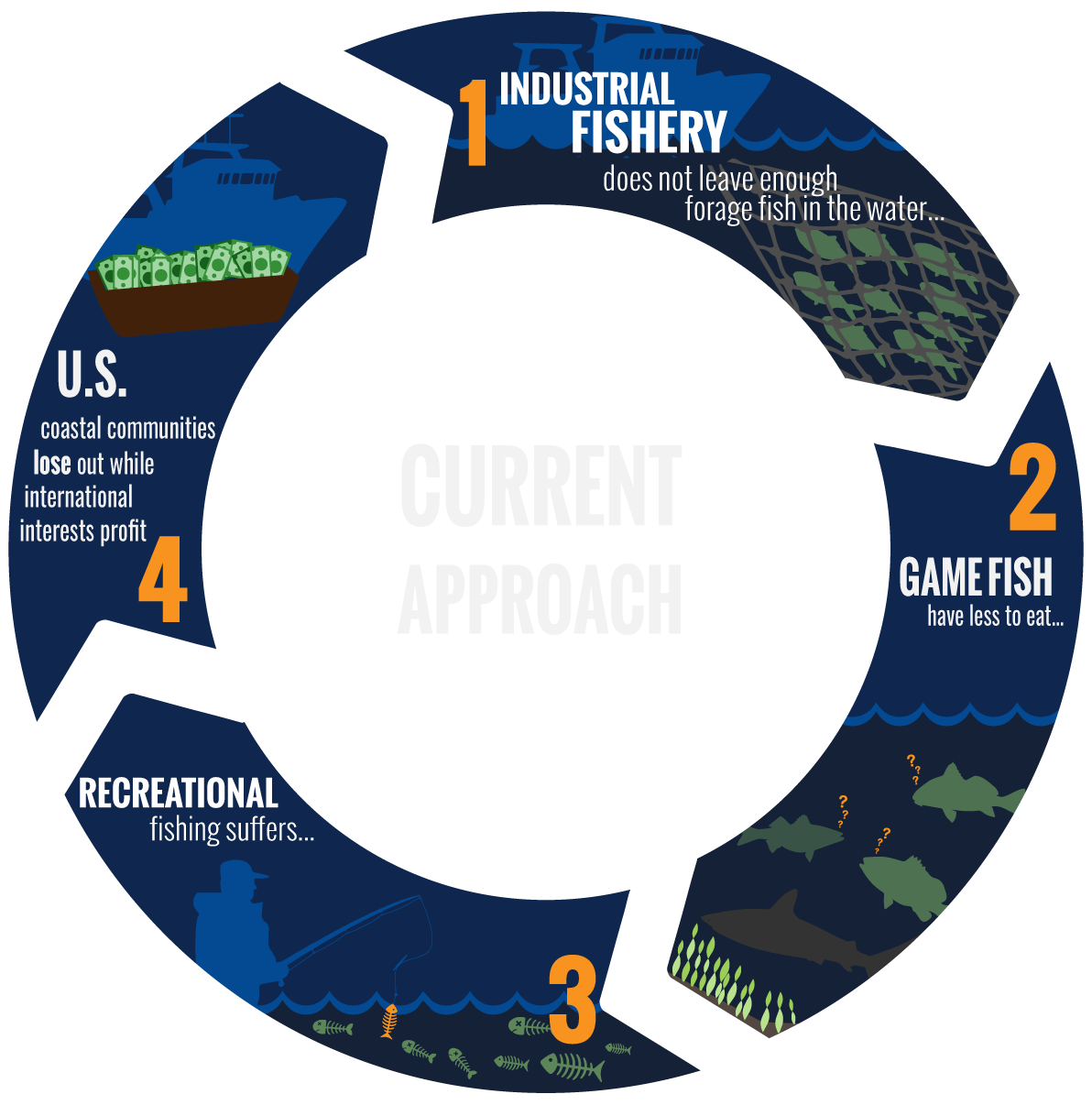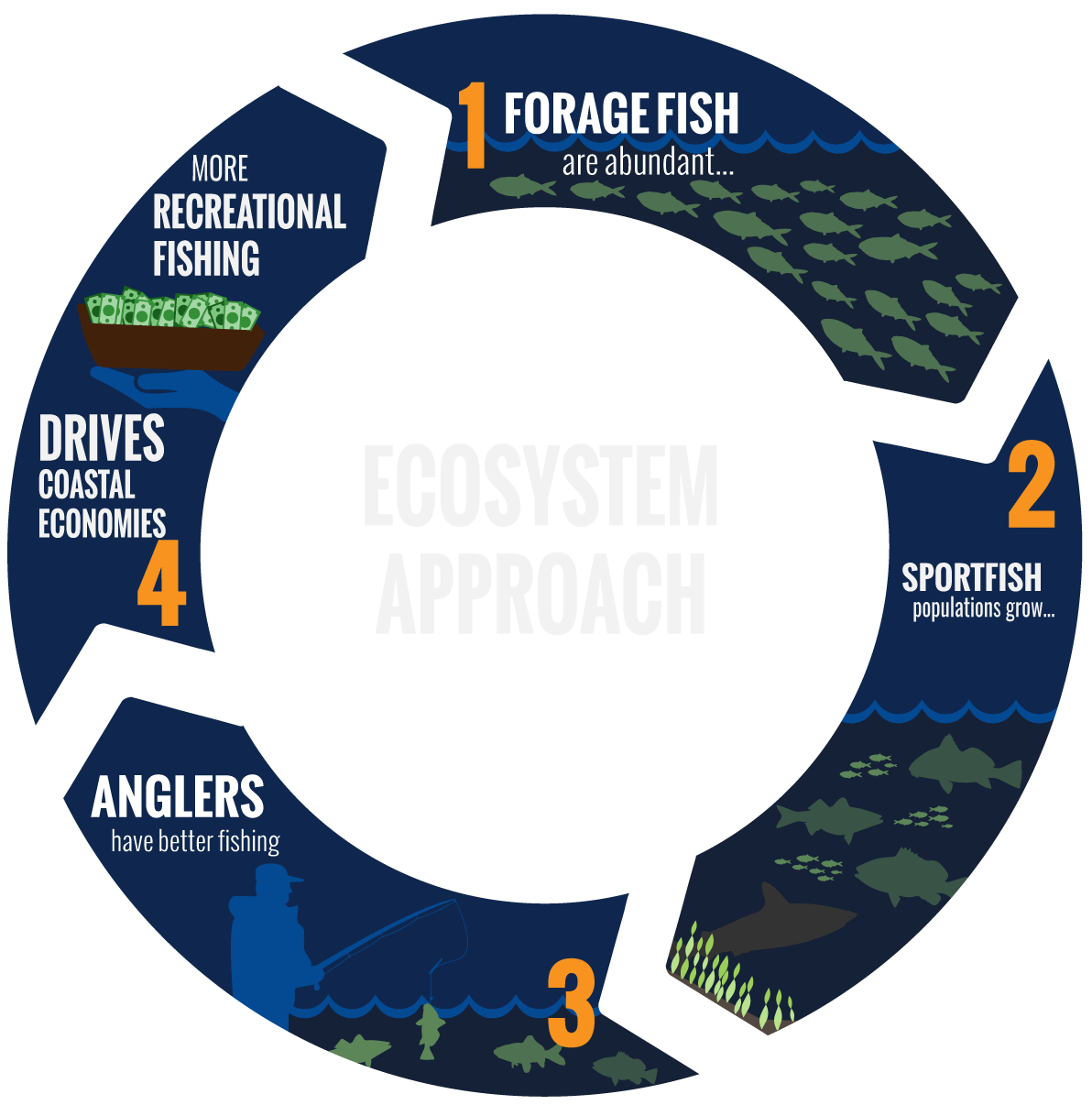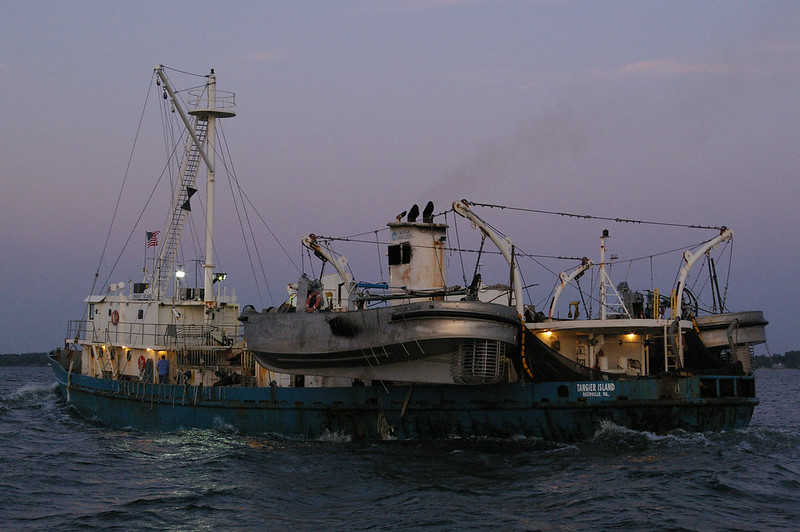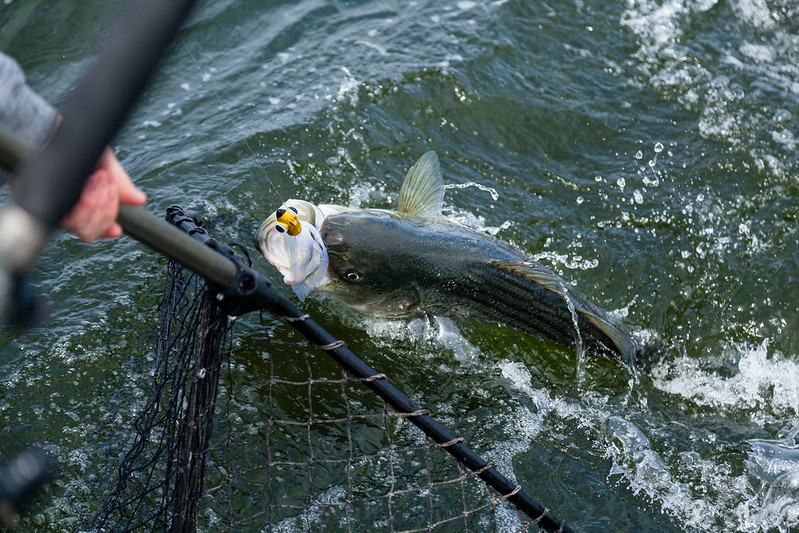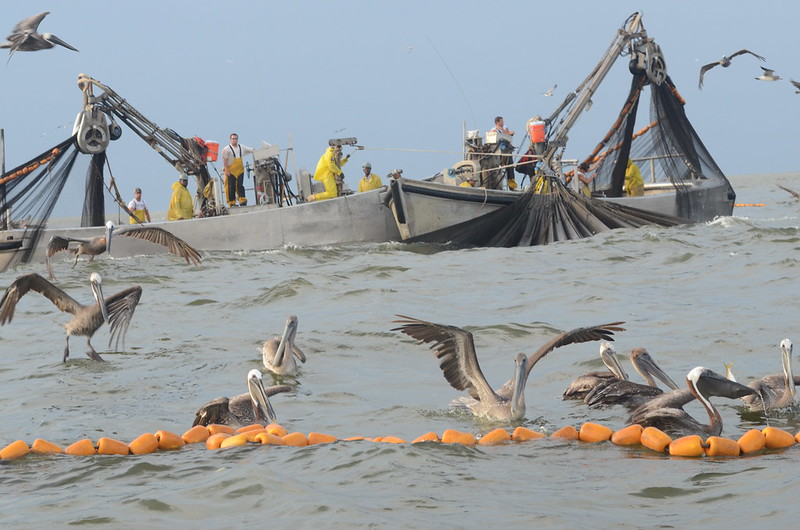Like other small but critically important forage fish, menhaden and herring play a central role in marine food webs. These tiny, oily baitfish are an essential food source for larger fish species, including some of the most economically important sportfish: striped bass, redfish, bluefin tuna, bluefish, speckled trout, weakfish, tarpon, summer flounder, and sharks. Whales, dolphins, seabirds, and other marine species also consume these forage fish in large quantities.
But not all forage fish are managed with consideration for their vital role in coastal ecosystems.
In fact, commercial harvest of Atlantic and Gulf menhaden has increased to meet the demand of what’s called a “reduction fishery,” which reduces billions of menhaden into livestock feed, fish oil, fish meal, fertilizers, cosmetics, and other products. More menhaden are commercially harvested each year than any other fish in the lower 48 states—more than a billion pounds are caught per year on the Atlantic and Gulf coasts.
Atlantic herring are also netted by the millions, mostly to be sold as lobster trap bait rather than being left as food for larger fish and wildlife, or used as bait for low-impact recreational fishing. The mass removal of these species puts predators at risk and undermines the health of marine ecosystems.

